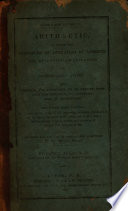 | Daniel Adams - Arithmetic - 1831 - 276 pages
...geometrical series. As in arithmetical, so also in geometrical progression, there are five things, any three of which being given, the other two may be found : — 1st. The/r*< term. 2d. The last term. 3d. The number of terms. 4th. Thereto. 5tn. The sum of... | |
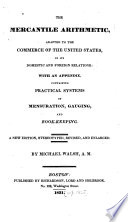 | Michael Walsh - 1831 - 348 pages
...2. The last term. •3. The number of terms. 4. The equal difference. 5. The sum of all the terms. , Any three of which being given, the other two may be found. The first, second, and third terms given, to find the fifth. RULE. Multiply the sum of the two extremes... | |
 | William Ruger - Arithmetic - 1832 - 282 pages
...The number of terms. 2d. The list term. 4th. The common difference. 5th. The sum of all the terms. Any three of which being given, the other two may be found. "-7 CASE I. — The first term, common difference, and ntanIcr of terms given, to find the last term.... | |
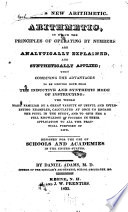 | Daniel Adams - Arithmetic - 1833 - 268 pages
...geometrical series. As in arithmetical, so also in geometrical progression, there are five things, any three of which being given, the other two may be found : — 1st The first term. 2d. The last term. 3d. The number of terms. 4th. The ratio. 5th. The sum... | |
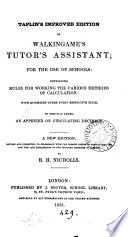 | Francis Walkingame - 1835 - 270 pages
...1,2,3,4,5. ' j,'* 3x2=5+1 or 3x2=2 + 4.' '''' •'«"' ' In this rule, five terms are to be observed, any three of which being given, the other two may be found : viz.. The first term, The last term, The number of terms, The equal difference, and The sum of all... | |
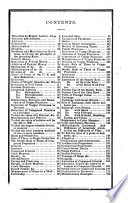 | John Rose - Arithmetic - 1835 - 192 pages
...or divisor, by which the series is founded. In Geometrical Progression there are five denominations, any three of which being given, the other two may be found. 1st. The first term. 2d. The last term. 3d. The number of terms. 4th. The ratio. 5th. The sum of the... | |
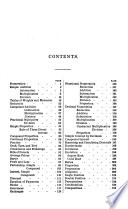 | William Tate - 1837 - 358 pages
...last term, the number of the terms, the difference or ratio of the terms, and the sum of the terms ; any three of which being given the other two may be found. ARITHMETICAL PROGRESSION. Arithmetical Progression is when three or more numbers or quantities increase... | |
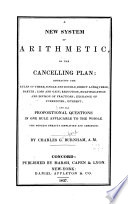 | Charles Guilford Burnham - Arithmetic - 1837 - 266 pages
...considered, viz : the first and last terms, the number, common difference, and sum of all the terms ; any three of which being given, the other two may be found. 1. If 1 buy 4 books, giving 2 cents for the first, 4 for the second, and so on, with a common difference... | |
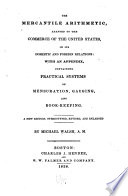 | Michael Walsh - Arithmetic - 1838 - 346 pages
...term. 2. The last term. 3. The number of terms. 4. The equal difference. 5. The sum of all the terms. Any three of which being given, the other two may be found. The first, second, and third terms given, to find the fifth. RULE. Multiply the sum of the two extremes... | |
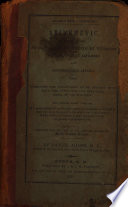 | Daniel Adams - 1839 - 268 pages
...extremes, and the other terms are called the means. There are five things in arithmetical progression, any three of which being given, the other two may be found: — 1st. The first term. 2d. The last term. 3d. The number of terms. 4th. The common difference. 5th.... | |
| |